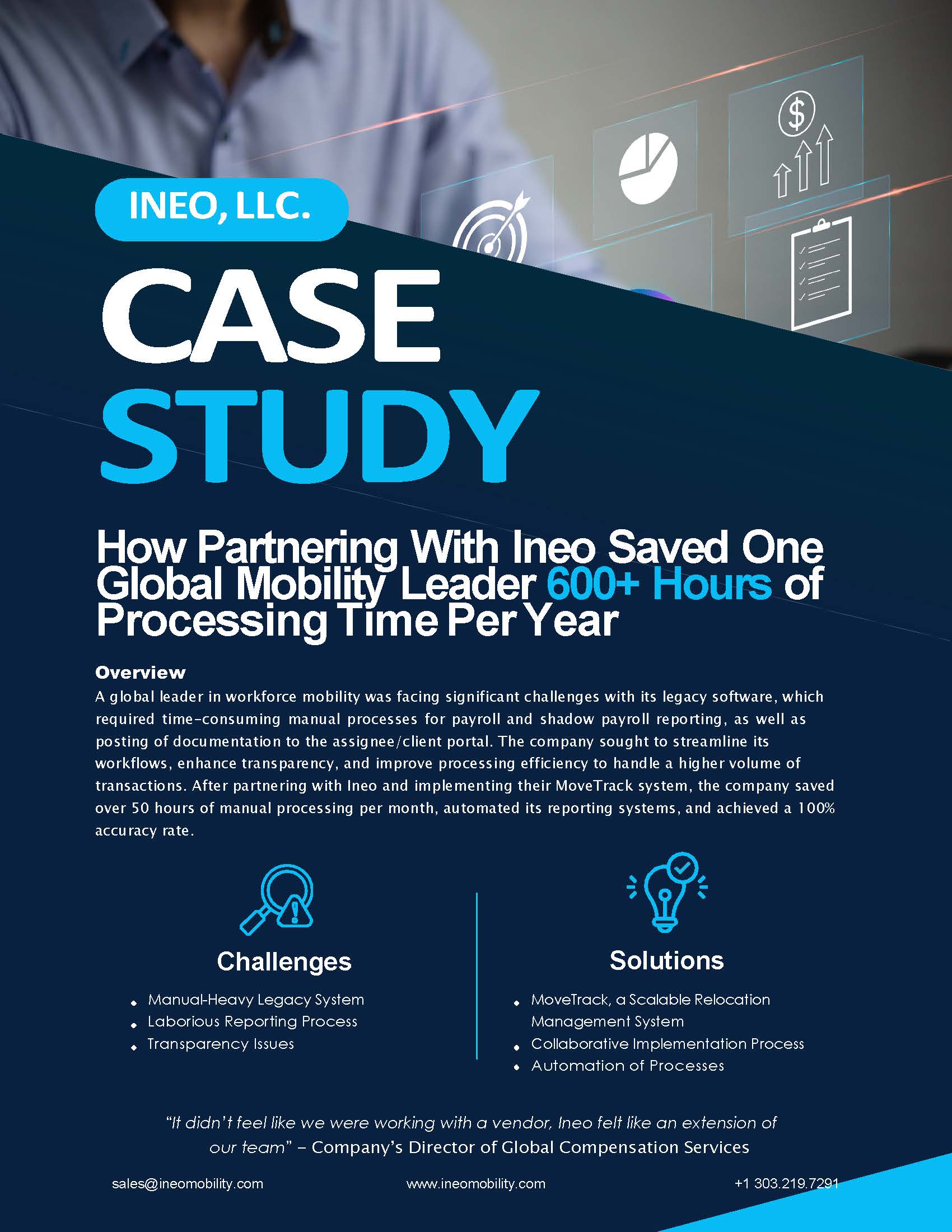Tax Compliance Best Practices for International Assignments

In our increasingly globalized business environment, many companies now freely send their employees across borders as a means of establishing an international presence. Although maintaining a global mobility program is useful for expanding business operations, it comes with its challenges for organizations and mobility leaders.
Understanding tax compliance is one of the most critical aspects to consider when sending employees on international assignments. With countries having such diverse tax compliance codes and regulations, it’s critical to understand what issues may arise when crossing international borders to avoid potential conflicts and penalties.
Let’s take a look at some tax compliance best practices organizations can implement when sending employees on international assignments.
Consult with Tax Counsel
Tax compliance can be complex. What’s worse, failure to properly adhere to international tax compliance obligations may result in excessive tax bills, financial penalties and various other risks. Establishing a tax counsel team can help organizations understand the costs associated with sending employees on international assignments.
This should be one of the first steps when setting up the framework of your global mobility program as it can improve operational efficiency related to handling and managing international assignments. If you don’t already have an internal tax team, you can engage with a third-party tax company to act as counsel.
Consulting with tax counsel is an investment in time and money, but the costs of not being compliant are much greater.
Determine Taxable Presence
Employers must practice due diligence when determining if employees are performing work obligations as either permanent or temporary residents. It’s a common misconception that keeping short-term temporary assignments under six months or less can help avoid potential tax implications. The truth is any international assignment may affect tax obligations.
Some items to consider related to taxable presence include:
- The types of activities being performed by the employee
- Which entity is bearing the assignment-related costs
- Tax reporting obligations in both foreign and domestic countries
- Corporate compliance implications such as permanent establishment and economic employer provisions
- Income tax treaties
Understanding taxable presence can help to mitigate tax risk issues. Creating clear assignment letters can help determine responsibility, compensation, and assignment details that may affect tax implications. As a result, relocating employees can better understand the potential tax ramifications associated with working in a foreign country.
Understand Local and Foreign Tax Codes
Companies need to consider the local withholding guidelines for the countries there are doing business in to ensure they are compliant. The actual withholding rates may differ depending on the fact and circumstances of each individual, such as residency and tax treaty applicability.
Understanding the corporate compliance environment, that is, not only the proper reporting but also paying adequate remittances related to business and employee activities, is essential to maintaining an appropriate going concern environment in the operational localities.
Having a tax counsel team can help you avoid taxation issues such as:
- Double taxation
- Fees and other penalties
- Noncompliance with global reporting requirements
Many countries have also stated agreements that stipulate how income is taxed. For example, the United States and the United Kingdom have a tax treaty and totalization agreement with concessions related to double taxation and Social Security coverage for employees working from foreign countries.
Understanding income and social tax implications for each country is critical to implementing a compliant yet cost effective international assignment program.
Use a Central Global Mobility Program
A centralized global mobility program can support adherence to company relocation and assignment policies as well as provide consistency regarding compensation and benefits among the internal assignment or relocation employee populations.
Implementing such a model can help companies manage taxation considerations on a global basis. Designed to aid employers in successfully transitioning employees to foreign countries, global mobility programs help organizations understand and adhere to international tax compliance laws and requirements.
Moving employees across borders requires understanding various domestic and international tax requirements. Failure to address these considerations may result in various foreign tax disputes and compliance issues.
Global mobility software provides comprehensive solutions that help organizations manage the tax implications associated with their global workforces. Whether it be short-term assignments or permanent relocations, global mobility software can help manage various logistical responsibilities including:
- Compensation and payroll reporting
- Assignment details and dates
Accounting for global tax laws, reporting requirements, and other compliance issues can be a complex process for organizations. Understanding the potential penalties and pitfalls associated with relocations can go a long way towards avoiding double taxation rates and excessive fees.
Corporations should utilize global mobility software programs to create full lifecycle management techniques that integrate mobility workflows. Using software solutions such as Ineo’s TechSuite can help to simplify and streamline mobility programs within centralized workflow systems.
By following these tax compliance best practices, you’re setting your organization and employees up for successful international assignments.
Global Mobility Resources
Learn more about what’s going on at Ineo and insights into the complex world of global mobility from the industry’s top thought leaders and innovators.
Request A Demo
Whether you are new to the world of global mobility or you’ve been in the business for a while, Ineo is here to assist you.
The best way to learn how Ineo’s global mobility software can help your company revolutionize your global mobility program and support your business strategy is to see it in a demo.
Fill out this form to get started today.
Get Started

